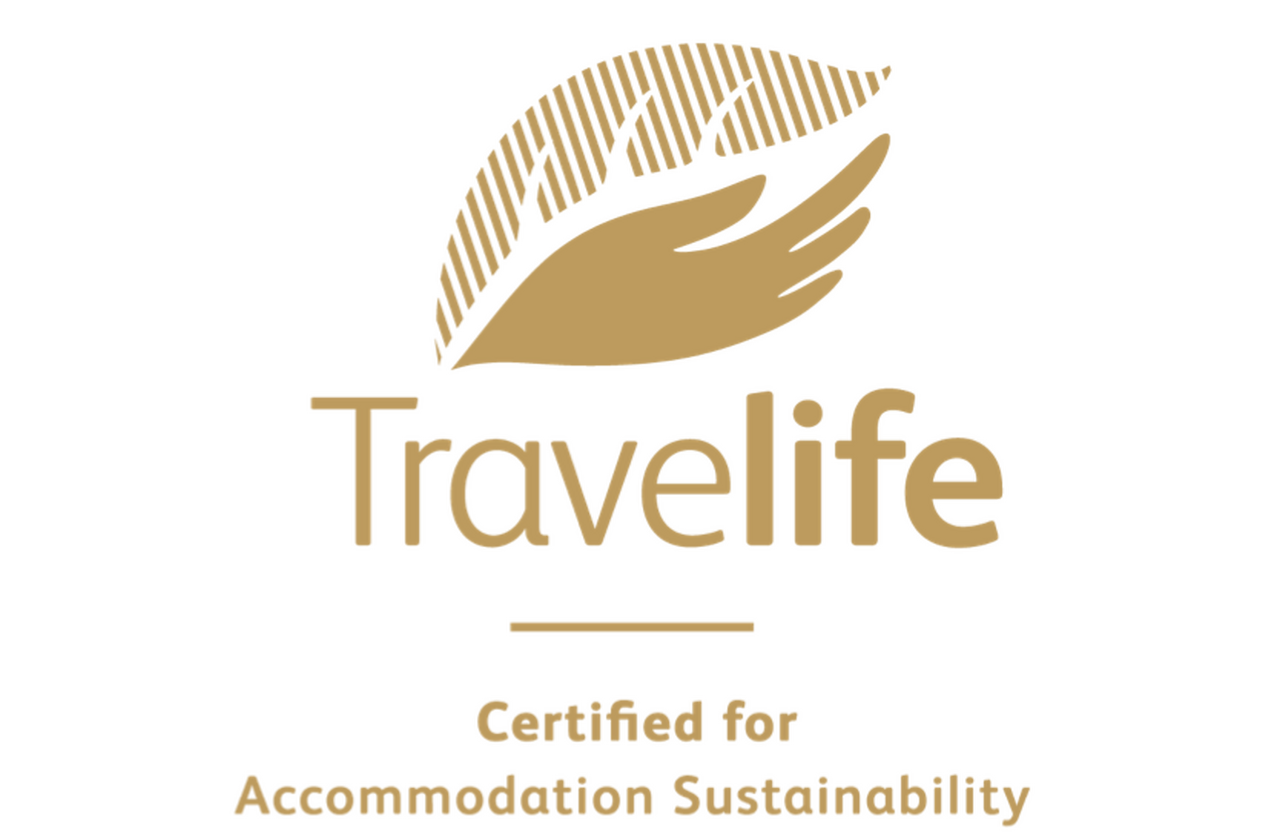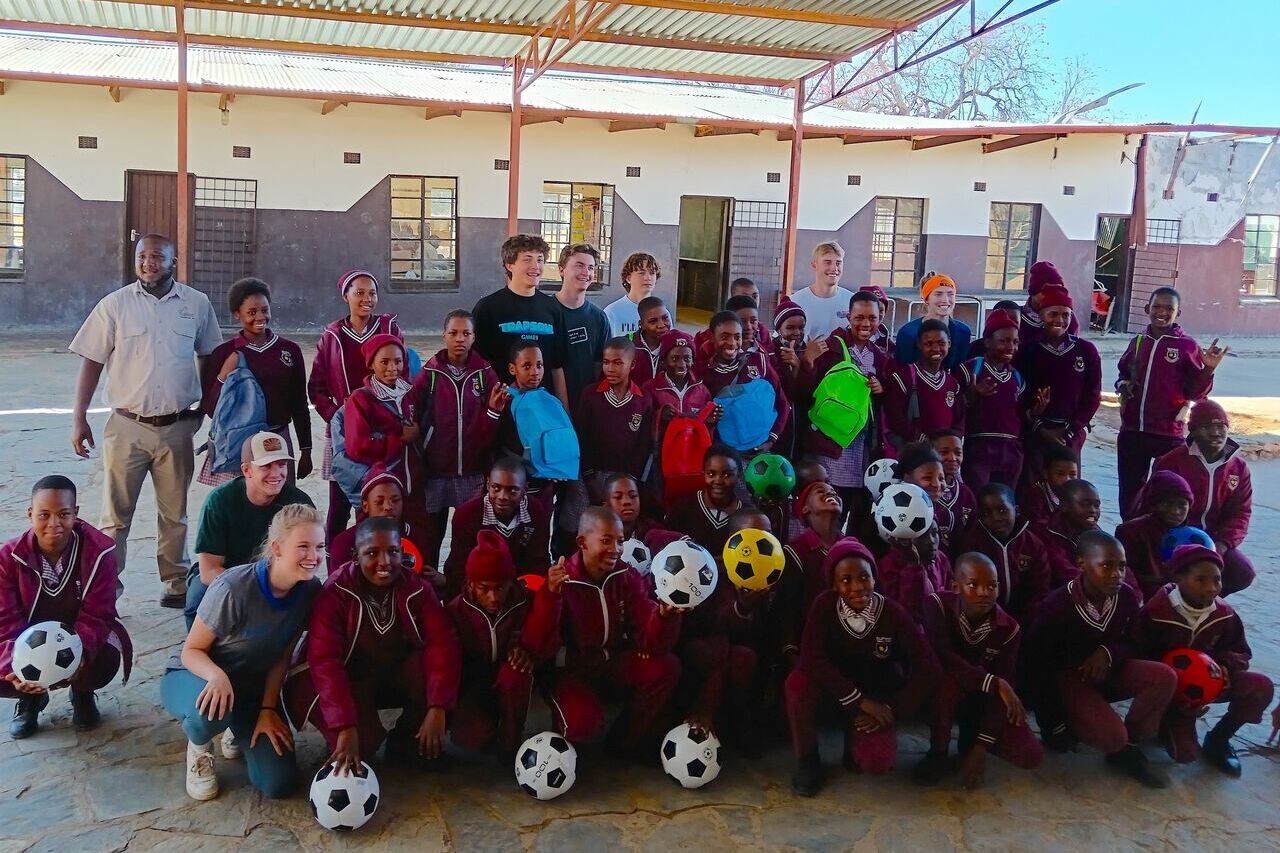Sustainability
Sustainability at Rhulani Safari Lodge
We at Rhulani Safari Lodge are continually working to improve the impact we have on people, nature and communities. We are committed to reducing our greenhouse gas emissions, to protecting and supporting biodiversity and to live in harmony with the wild nature that surrounds us and with the nearby communities from which the majority of our employees come.
Travelife Gold Accommodation Sustainability
As of 23 April 2025, Rhulani Safari Lodge is only the second hotel in South Africa to receive a "Travelife Gold" certification, thus meeting travel standards according to the Global Sustainable Tourism Council (GSTC). This confirms our ongoing commitment to a better place to live, work and visit.
Travelife is a global accommodation sustainability certification body, respected for being impartial and robust. Their comprehensive set of requirements cover emissions, biodiversity, human rights, fair labour, child safeguarding and animal welfare.

Our current goals
Long-term goals
We set ourselves a target of reducing our greenhouse gas emissions from energy, water and waste by 30% before the end of 2030. The main focus is on the optimal use of the solar system (to reduce diesel consumption from the generator) as well as monitoring the development of electric safari vehicles and a changeover as soon as the technology is sufficiently advanced.
We will continuously increase our support in "Conservation & Community" with concrete projects. We will involve our guests more in order to create awareness and obtain additional financial resources.
All these initiatives aim to live in peace and harmony with our environment, preserve biodiversity in the Madikwe Game Reserve, and provide education and employment opportunities for the local population.

2026 Short-term goals
Reduction of greenhouse gas emissions
We want to achieve a reduction by 10% by 31 December 2026. The following measures are taken to ensure this goal:
- Further reduction of generator usage through an extension of the current solar plant (more pannels, more storage capacity) and by further system optimization
- Produktion of our own bottled drinking water for our guests, still and sparkling, using water filtered through our RO system.
- Construction of our own vegetable garden^
- Construction of a 10,000 sqm recreational outside atrium with walking paths along native plants and trees to preserve native species
Conservation & Community
We increase visibility in the lodge through the possibility of donations for activities in wildlife conservation or in the communities.
We will financially support at least two wildlife conservation measures in the Madikwe Game Reserve and at least one new project in the communities.
Past achievements
Environmental Sustainability Actions
We have successfully implemented the following measures along our goals to continuously reduce greenhouse gas emissions and to be kind to our environment and to preserve the biodiversity of the wonderful nature that surrounds us.
2025
- In April, we became the second hotel in South Africa to receive Travelife Gold certification, confirming our commitment to sustainability in accordance with the standards of the Global Sustainability Tourism Council (GSTC).
- We implemented a reverse osmosis system to filter borehole water and purify it into drinking water for the entire lodge operation, and which reduced our need to purchase bottled water. Our guests now enjoy drinking water in their rooms, as well as the elephants coming for a drink at our watering hole.
- We have installed measuring systems to measure water consumption from the boreholes, to weigh our waste which we dispose of separately, as well as to weigh the firewood and paraffin, which now allows us to monitor consumption and better control how exactly we can make further savings.
- For the guests' dinners, we have introduced elegant and decorative solar-powered table lamps.
- We have introduced reusable lunchboxes for our employees' meals, which has allowed us to reduce the consumption of single-use plastic wrappers.
2024
- Monitoring of solar system and optimization of the KPI’s by adjusting the system and the operational routines at the lodge in order to reduce the use of the generator as a back-up and so to reduce diesel consumption. We have successfully achieved our target to get at least 90% of our energy demand covered by solar.
- Introduction of easily implementable best practice recommendations to reduce water and electricity consumption and communicated to both our guests and our own employees, with special focus on lights, pool heaters, geysers, air-conditioners and shower use.
- We have eliminated the small plastic bottles for shampoo, body wash and conditioner in the bathrooms of the guest chalets and replaced them with containers permanently installed on the wall.
- As part of the Global Sustainable Tourism Control (GSTC) certification process, we have begun closely tracking our greenhouse gas emissions and defining an action plan to further reduce them in the future.
2023:
- Installation of a solar system, which makes us independent of the public power grid. We have not received any state electricity since October 2023.
2021
- Elimination of plastic bottles by using reusable glass water bottles during dinner times, installation of filtered water stations in the main area of the lodge, as well as introduction of aluminium water bottles as a gift for all our guests to take water with them during safaris
- We have started to replace all light bulbs with energy saving bulbs and all electrical appliances have since been replaced with appliances with the best energy rating
2020
- Installation of rainwater collection from the roofs in our Staff Village for water to be used for garden irrigation and as a reserve for fire fighting
Conservation & Community
In cooperation with the Madikwe Game Reserve, we have provided financial support for various animal protection initiatives, partly thanks to donations from our guests as well. The priority was on protecting the rhinos against poaching (“rhino notching”), tracking and ensure the reproduction of the cheetah population (“cheetah collaring”) and protecting the wild dogs (medical care, when needed).
Our support to the surrounding communities was mainly focused on improving the infrastructure at ther nearby Primary School in Supingstad. In 2025, supported by a public fundraising, we provided a generator to the school, which means that children can now learn in classrooms that stay warm during the cold winter months, they have proper lighting to read and work by, teachers can print the documents and worksheets they need, and the boreholes can pump clean water for the toilets and basins.
Thanks to a collaboration with Mr. Pule Puleyane in the newly created role of "Community Liaison", we have created the basis for improving communication with the communities and getting to know their needs. The support to the communities should also involve our guests in order to offer them a "cultural exchange" by respecting the local traditions and heritage.
For an overview of our concrete activities in Conservation & Community, please refer to the publications in our Blog Section here
Your support counts
Your opinion and feedback about our current sustainability measures and future goals are important to us. Please send us feedback or any suggestions by e-mail to: sustainability@rhulani.com
If you would like to give support to our conservation work in the reserve or to the communities around Rhulani Safari Lodge with a voluntary donation, we ask you kindly to either add a specific amount to your hotel bill to be paid upon check-out or to make a payment to the following bank account, stating the specific purpose:
Bank: Nedbank
Branch: Business Westrand
Universal Branch Code: 128605
SWIFT Code: NEDSZAJJ
Account name: RHULANI Safari Lodge (Pty) Ltd.
Account number: 1286048613